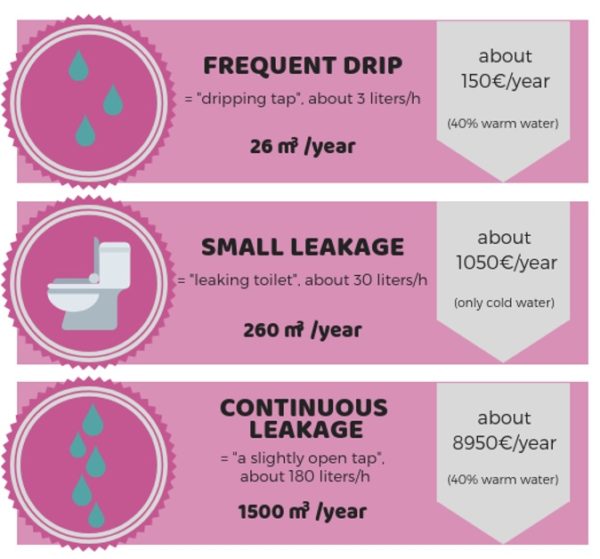- POAS
- »
- Tenant services
- »
- Good living
- »
- Saving energy and water
Saving energy and water
Significant part of living costs are formed by the consumption of heat, water, and electricity. When you use these commodities moderately, you help both the environment and to keep the living costs as low as possible. This is how you also reduce the pressure to increase your rent. Read tips on how to save energy at your home.
When using the common areas and spaces of your housing complex:
- A sufficient temperature of the common spaces is 17–18 °C
- Close the doors, windows and lights when leaving the common areas. Make sure that the doors in the staircases and basement close properly.
- Washing machines and other equipment in the laundry and drying rooms must be used in energy and water saving way
- Exhaust air ventilation valves must not be blocked and air exchange vents must always be left open
- Inform POAS via Notice of Defects form if you notice any issues or defects in the common areas
Heating:
- Ideal room temperature is between 20–22 °C. Increasing room temperature by one degree increases heating costs by five per cent.
- Purchase a temperature thermometer to monitor the room temperature. Measure the temperature from the middle of the room, not near the windows, floors or exterior walls.
- Adjust the temperature with the radiator valves, and do not air out excess heat. Read more information on the heating of the apartments.
- Observe the condition of the weather strips and structures of windows and front doors. Inform POAS via Notice of Defects form if you notice any issues or defects.
Saving electricity:
- Read the manuals for your domestic appliances carefully and follow their instructions.
- Do not adjust the thermostat of the sauna stove to unnecessarily high temperature.
- Make sure that there is room for air to circulate between the stove’s stones and resistors.
- Clean the condenser of the refrigerator and freezer (behind the device) at least a few times a year.
- Make sure that air circulates freely around the refrigerator or freezer condenser.
- Defrost the freezer or freezer compartment at the latest when there is 5–10mm of frost on the cooling surfaces.
- Do not keep the temperature in the refrigerator/freezer unnecessarily cold.
- Buy a thermometer for your refrigerator and freezer.
- Do not put warm foods in the refrigerator/freezer.
- From time to time, check the condition of the refrigerator and freezer gaskets.
- Use fluorescent lamps or so-called savings lamps (compact fluorescent lamps) in places where the light is left on for long periods of time.
- Turn off electric appliances immediately after you stop using them.
- Wash full loads when doing laundry. Use energy-saving programs when possible.
- When cooking, utilise the after-heat of the oven and hot plates.
- When cooking food in a kettle, use a lid.
- Defrost frozen food in the refrigerator or in room temperature before using it in cooking.
- Do not connect your car to the heating pole if you do not intend to use the car for a while.
- More information on electric appliances.
Saving water:
- Use warm water economically – it’s twice as expensive as cold water! Water consumption expenses are significantly influenced by tenants’ water consumption habits.
- Avoid washing or rinsing dishes under running water: this consumes multiple amounts of water compared to washing and rinsing in the sink.
- Keep the shower running only when you’re washing yourself; avoid running water unnecessarily.
- Do not run water unnecessarily while brushing your teeth.
- When washing laundry, make sure to wash full loads. Close all taps carefully.
- More information on water saving.
- Keep an eye on the taps and toilet equipment and report any leaks immediately.
